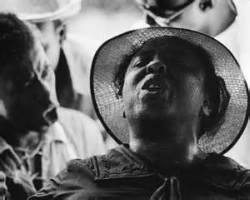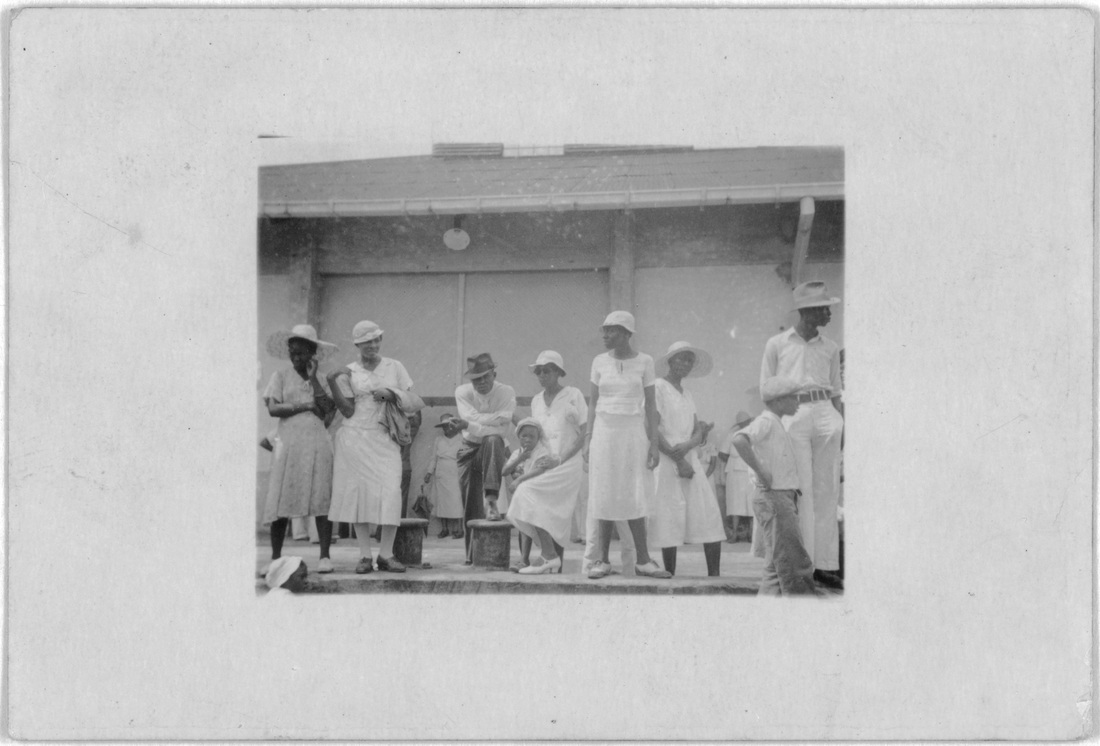 Fannie Lou Hamer
Fannie Lou Hamer
Civil Rights, Mississippi and Writing Miss Hazel and the Rosa Parks League
Growing up in Mississippi during Jim Crow and the Civil Rights Era, I, like most privileged white kids my age, lived comfortably inside a white bubble. I missed the events that rocked the nation. If not completely missed them, then at most they were presented to me as matters that had little to do with me. These occurrences concerned “the colored.” Emmitt Till’s lynching, the mob attacks on the Freedom Riders, the riots and deaths at Ole Miss, Medgar Ever’s assassination, Mississippi Freedom Summer, the murders of Chaney, Goodman and Schwerer, the shotgun attack on James Meredith, the Vernon Dahmer bombing—we were assured that at the victims probably deserved what they got, if for no other reason than being j misguided or reckless people destined to bring tragedy on themselves. If there was a white villain in the picture, then he certainly didn’t represent the majority of the good, Christian folks of Mississippi. He was an anomaly. So when I graduated from high school in 1969, I was contentedly ignorant of the horrors my state and my people had deliberately inflicted on African Americans. I remained that way for many years, until I moved up North.
In Minnesota, I became aware of another version of history. According to the Northern account, Southern whites were vicious racists and blacks were innocent victims who needed saving by benevolent Northern whites. And for a while, I bought this version. Turning on my own people, shamed that I was party to such evil and determined to shed my connection with the South once and for all.
Gradually, though, I began to find that neither version of history was the whole truth. Racism wasn’t limited to the South. All white southerners weren’t racists. Whites didn’t save African Americans. Blacks have been saving themselves since they were dragged against their will to these shores. I was learning a more complex and therefore interesting story, and one I wanted to tell. As my writing coach once said. Nobody likes to read about perfect saints, pure villains, or total victims. They are predictable and therefore boring. Certainly the story of Mississippi is not predictable and never boring.
I had to find out the truth for myself. I spent 10 years returning to Mississippi interviewing African Americans who had lived at the same time as me, in the same state, but in a different world. I was hungry for their stories, for I was getting the sense that their mandatory invisibility from my world as dictated by Jim Crow, had robbed me of my own history, as well as blinding me to their basic humanity, our kinship. Thrilled to educate a white boy about the lies he had been told, they graciously helped me to fill in the blanks. Mostly I discovered the countless ways their forced silence was used to reinforce my own sense of privilege and superiority. All of their contributions to my world were attributed to whites, and all of our moral failures were attributed to blacks. What a deal.
What I found that under the rubric of Jim Crow, operated an invisible black society, rich in art, education ,commerce, invention, spirituality and community solidarity. Black genius had to be kept invisible to keep from threatening the white power structure. Blacks had a better chance of being left in peace if they were seen as being no threat to whites. The blacks lived in two worlds, one for our benefit and another that didn’t revolve around the “superiority” of the white man.
Besides my personal interviews, there was another major impetus that made me want to “correct” history in my writing. It was reading John Ditmer’s book, Local People. He proved to me that Mississippi’s civil right’s history was different from other Southern states in significant ways.
One, unlike every other Southern state, Mississippi had no large cities. No Birmingham, Montgomery, New Orleans or Atlanta. Large Southern cites were necessary to give rise to a secure black middle class of professionals who could be economically independent of whites. This allowed African Americans more autonomy, and gave them more resources when it came to resisting white oppression. Most of the leaders of the Civil Rights Movement, except in Mississippi, came from those big cities. Black businessmen, preachers, doctors and teachers could take bold action and be backed by the solidarity of a strong community.
In Mississippi, the largest town was Jackson, and it had less than 200,000 people in 1960. The black middle class in Mississippi therefore was almost non-existent. And because they were so rare, they depended directly on the good graces of white people to maintain their standing. When the Civil Rights Movement came to Mississippi, instead of finding a solidified organization of professionals, it found instead, a few preachers and teachers and businessmen terrified of breaking that thin thread that held them in the middle class. As a result, professional blacks in Mississippi turned out to be, in many respects, as conservative and resistant to the message of civil rights as the whites. They could be depended upon by the white power structure to help maintain the status quo.
That’s why the movement in Mississippi was composed mostly of sharecroppers, fieldworkers, domestic servants, the young and as Mississippi Civil Rights icon Fannie Lou Hamer, herself a sharecropper, said, “Saturday night brawlers.” This was far from the cream of black high society. These were the people who didn’t have anything left to lose but their lives. AND, as Ditmer eloquently points out, mostly women!
This was inspiring to me. Especially after I learned another lesson from Ditmer’s book. He said that even though the law enforcement in other Southern states may have co-operated with the Klan, in Mississippi they were the Klan. The KKK had infiltrated all levels of government. What this meant was that in Alabama if you were arrested, at least you at made it to jail. In Mississippi, you were liable to disappear on the way. This was courage I had rarely encountered among my own white heroes.
The final thing I learned, both from Ditmer and my interviews, whites didn’t save anybody. It was not only the blood, sweat, and tears of blacks, but also their organization, strategy and relentless resistance, through both subversive acts and direct confrontation, to assaults on their humanity that freed them. Many lost their jobs, their homes and their lives for their efforts. Countless bodies have been dug up, dragged from rivers, cut down from trees whose names never made it into the history books as martyrs to the cause. When two white college kids went missing in 1964, and the cameras came down along with the FBI, national outrage was finally sparked. It seems it took two whites dying for the nation to care about the cause that hundreds of blacks had given their all. I think it is for this reason, that many still think that it was the whites who saved the blacks. But just as with emancipation and Lincoln, and with Kennedy and Johnson, blacks were in the forefront of their own liberation, strategically making white leaders uncomfortable in any way they could. They forced whites to finally do the right thing. Yet it’s the white men who go down in the history book and are remembered as being heroes to the black race. The tragedy is that this deprives black kids of heroes that look like them and white kids of heroes who don’t.
When I thought about writing a novel that touched on racial injustice in the Mississippi, many of my white colleagues advised me to make the hero white so that white readers would relate to it. Otherwise, it might be “discounted” as ethnic and not go mainstream. After reading Ditmer’s work, as well as hearing the oral histories of hundreds of black heroes who had the courage to do things I could never dream of, I realized I could not do that. If we whites are not ready to have a black hero to call our own, then shame on us.
While interviewing an elderly black man in Avalon, Mississippi, who had marched with Martin Luther King when he came through Granada County in 1966, I off-handedly remarked that King came to Mississippi free the blacks. The man quickly corrected me. “He came to free the whites, too. If you let him.” He was right. That was the first time I allowed King to become my hero as well.
Since then, I’ve come to believe that most of us American whites suffer from a crippling wound to the soul and can only be healed by blacks folks speaking their truth to us. If we let them.
